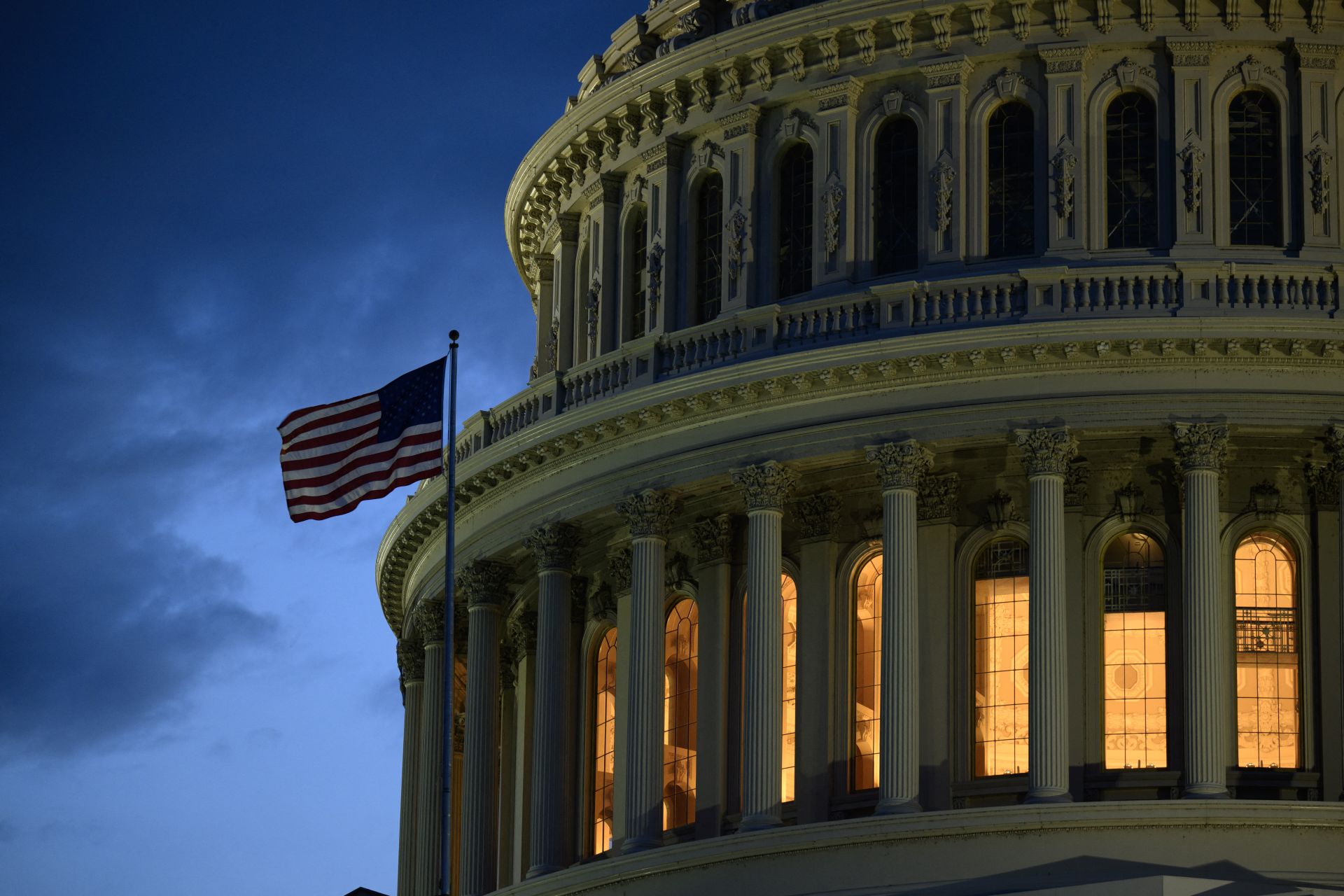- Home
- Middle East
- Senate Republicans Move Forward with Trump Tax Cuts

The US Capitol at dusk in Washington, DC, on April 4, 2025. US senators were set to vote April 4 on unlocking trillions of dollars for sweeping tax cuts promised by President Donald Trump, despite bitter infighting among the majority Republicans over the savings that will be needed to fund them. ©Drew Angerer / AFP
US senators on Saturday approved a budget blueprint unlocking trillions of dollars for sweeping tax cuts promised by President Donald Trump, despite bitter infighting among the majority Republicans over the savings that will be needed to fund them.
Working deep into the night, lawmakers voted 51-48, mostly along party lines, to approve the resolution, with two prominent Republicans opposing the measure.
It now moves to the House of Representatives, where Republicans hold a slim majority and where hard-liners and fiscal hawks have criticized the Senate version.
The Senate vote came at a time when Trump's sweeping tariffs imposed on dozens of trading partners sent global stocks plummeting, with Democrats arguing that now is not the time to be entertaining significantly reduced government spending.
"President Trump's tariff tax is one of the dumbest things he has ever done as president, and that's saying something," CNN quoted Democratic minority leader Chuck Schumer as saying.
Schumer submitted an amendment targeting Trump's tariffs, but it did not receive enough support for adoption.
Republican senators Susan Collins of Maine and Rand Paul of Kentucky joined the Democrats in opposing the budget resolution.
But nearly every Republican stood by the president, with Senator Bill Cassidy of Louisiana saying in a brief statement, "President Trump wants to balance the budget and decrease our debt. I agree."
Depth of cuts
Senate and House Republicans have been at loggerheads over how deeply to wield the knife, with lawmakers already wary of public anger over an unprecedented downsizing of the federal bureaucracy led by Trump's tech billionaire advisor Elon Musk.
Both chambers need to adopt identical versions of the budget blueprint -- a task that has proven beyond them during months of fraught talks -- before they can draft Trump's giant bill to extend his first-term tax cuts and boost border security and energy production.
"This bill lays the groundwork to provide additional funding to keep the border secure, grow our energy dominance, build a strong national defense, cut wasteful spending, and prevent a tax increase on families and small businesses," Republican Senator James Lankford said after the vote.
Senators spent much of the all-night session voting on dozens of proposed tweaks to the plan -- in a so-called "vote-a-rama"—with" some proposals aimed at forcing Republicans onto the record over Trump's tariffs on imports from countries around the world.
Having made it through the Senate, the spending plan still needs approval by the House, with Republican leaders desperate to get it to Trump's desk before Congress begins a two-week Easter break next Friday.
Democrats have slammed the framework, claiming it will trigger further major cuts to essential services.
'Dead on arrival'
The proposal would raise the country's borrowing limit by $5 trillion to avoid a debt default this summer, staving off the need for a further hike until after the 2026 midterm elections.
Experts say the tax cuts -- which would greatly expand the relief agreed in 2017 -- could add in excess of $5 trillion to the national debt over the next decade.
The libertarian Cato Institute called the resolution a "fiscal train wreck" that "actively worsens our nation's debt trajectory."
Trump, who has talked up the plan on social media, offered his "complete and total support" for the text at a White House event earlier in the week.
But Senate and House Republicans have been oceans apart on spending cuts, with the upper chamber looking for modest savings of $4 billion, while House leadership is demanding a reduction of $1.5 trillion.
Republican Congressman Ralph Norman of South Carolina, a hard-line conservative, was asked about supporting the Senate resolution and told reporters: "To me, it's dead on arrival."
AFP
Read more




Comments